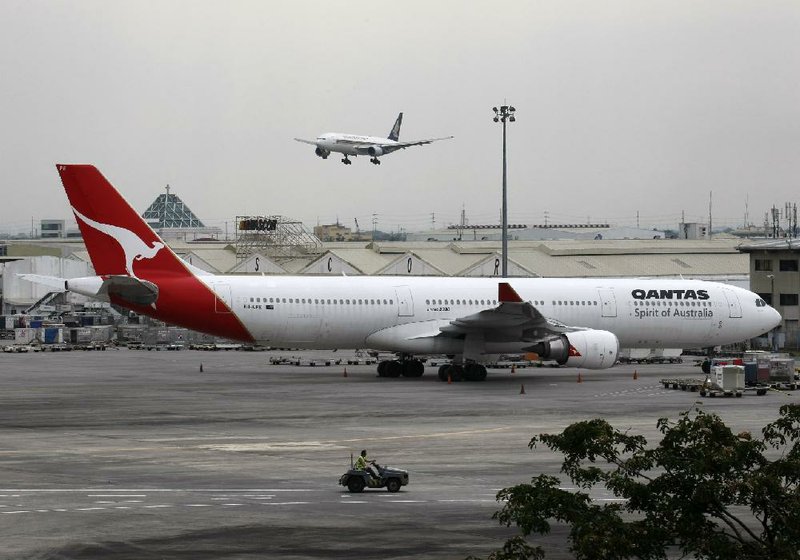CANBERRA, Australia — Qantas Airways’ flight schedule will return to normal by Tuesday after an Australian court intervened in a bitter labor dispute that prompted the world’s 10th-largest airline to ground its entire fleet, the company’s chief executive officer said today.
Alan Joyce said the first of the grounded aircraft would return to the sky early this afternoon, about 12 hours after an emergency ruling by an arbitration court ended weeks of strikes and canceled a staff lockout.
Joyce praised the outcome, which prevents unions from taking any further strike action over their demands for pay raises and job security clauses under new contracts being negotiated. The strikes have been blamed for a crash in the airline’s future bookings.
“The important thing is that all industrial action is now over and we have certainty,” Joyce told reporters in Sydney.
“We will be returning to business as usual over the next 24 hours,” he said.
The arbitration court’s ruling today is a major victory in the airline’s battle with unions, whose rolling strikes have forced the cancellation of 600 flights in recent months, disrupted travel for 70,000 passengers and cost Qantas $75 million.
But the surprise grounding of all 108 planes Saturday, at a cost of $20 million a day, has hurt the Australian flagship’s reputation among the tens of thousand of passengers who have been stranded around the world.
The Australian government, angered by a lack of warning of the grounding, called an emergency court hearing Saturday night to end the work bans for the sake of the national economy.
The arbitration court heard more than 14 hours of testimony from the airline, the government and unions. Workers have held rolling strikes and refused overtime work for weeks out of worry that some of Qantas’ 35,000 jobs would be moved overseas in a restructuring plan.
The unions wanted a temporary suspension of the employee lockout, but the airline said the strikes had been too devastating and it needed certainty to continue operating. But the airline said the strikes had devastated the airline’s reputation for reliability and that the threat needed to be removed permanently before customers would return.
Tribunal President Geoffrey Giudice said the panel decided a temporary suspension would still risk Qantas’ grounding its fleet in the future and would not protect the tourism and aviation industry from damage.
Qantas is the largest of Australia’s four national domestic airlines, and the grounding affected 108 planes in 22 countries.
About 70,000 passengers fly Qantas daily, and would-be fliers this weekend were stuck at home, hotels or airports when Qantas suspended operations. More than 60 flights were in the air at the time but flew to their destinations, and Qantas was paying for passengers to book other flights.
German tourist Michael Messmann was trying to find a way home from Singapore on Sunday. He and his wife spent five weeks traveling around Australia but found their connecting flight home to Frankfurt suddenly canceled.
“I don’t know the details of the dispute, but it seems like a severe reaction by the airline to shut down all their flights. That seems a bit extreme,” said Messmann, 68. “After five weeks of traveling, we just want to go home.”
Australian business traveler Graeme Yeatman sided with the airline, even though he was also trying to find a new flight home to Sydney on Sunday after his flight was canceled.
“I think the unions have too much power over Qantas. Even though this is an inconvenience for me, I’m glad the airline is drawing a line in the sand,” said Yeatman, 41.
The airline infuriated unions in August when it said it would improve its lossmaking overseas business by creating an Asia-based airline with its own name and brand. The five-year restructuring plan will cost 1,000 jobs.
Qantas said in August it had more than doubled annual profit to about $268 million but warned that the business environment was too challenging to forecast earnings for the current fiscal year.
Front Section, Pages 4 on 10/31/2011
